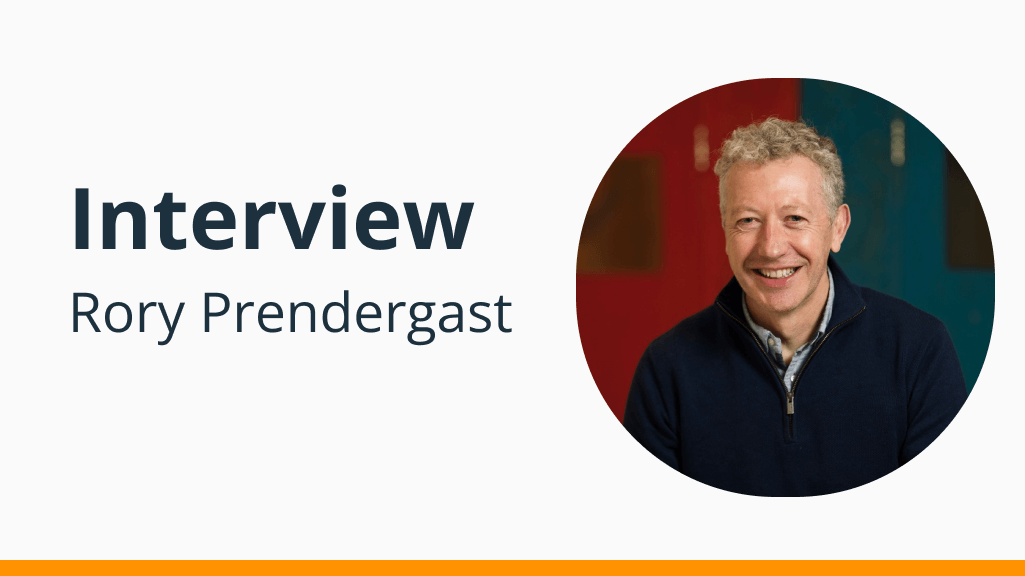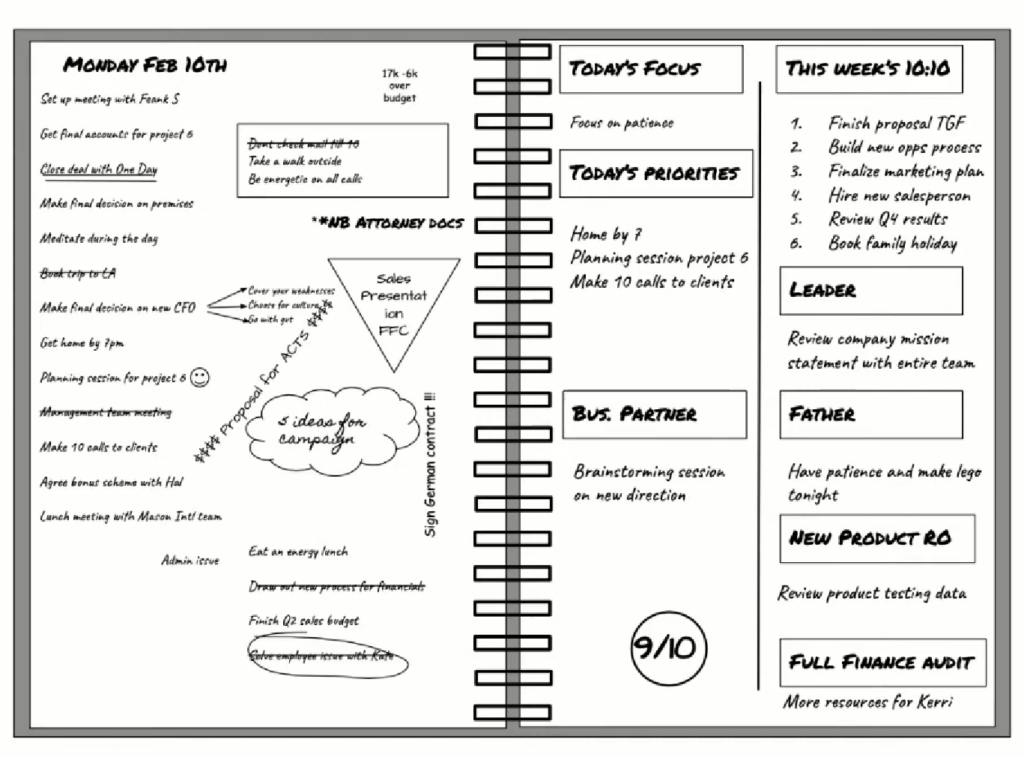
In OnePageCRM, we’re huge fans of productivity and are always on the lookout for interesting practical concepts and ideas.
I recently read the Game Changer Formula, which puts a different spin on productivity and introduces a simple 10-step daily formula for predictable success (so simple that I was able to implement it and see the results while still reading the book!).
Rory Prendergast, the author, is a serial entrepreneur and business coach who built two multi-million dollar businesses and sailed across the Atlantic Ocean. I asked Rory if he’d be willing to share his lessons and approach to coaching—and I’m very happy that he agreed.
So enjoy the read!
Business owners sometimes struggle with delegation. Why is that and how can they learn to delegate efficiently?
Many business owners, especially small business owners, are completely involved in their business every day. Nothing can happen without them. But they don’t want to be in that situation. Although they want to work more on the business rather than in the business, they’re afraid to let go of the day-to-day.
There’s a fear that if they do this, the whole business will fall apart. But if nothing can happen in the business without them, the business can’t grow the way it should.
That’s why I spend most of my time helping business owners to put structures and systems in place so that they can release that fear of letting go. Once they know that they’ve got the right structures, they can step back, make better decisions, and focus on growing their business.
But sometimes structures and processes fail. Is there a way to create processes that actually work?
As business owners, I think we don’t always realize that we operate from a framework within our minds. For example, if I run a restaurant, and something goes wrong in the restaurant, I know immediately what to do. I don’t even have to think about that. That’s why it might seem like nobody else can understand that or get it right.
But it’s not an instinct. Business owners have a framework in their heads. We use it to make decisions every day and we do it so quickly that we don’t see this framework. That’s why we need to lay it out.
Once business owners see this framework, it completely changes everything for them. They can now take it, transfer it to staff, and step back. This is where the trust comes in. From now on, they are no longer relying on a feeling but rather on a system that they created and pulled out of their heads.
Next time there’s a problem in the business, the team will use that framework to do what you would have done. In other words, multiple people can now think the same way as you do.
The great news is that it already exists in most business owners’ heads. So as a coach, I help business owners extract it. Sometimes people come to me and say “I’ve tried to put SOPs in place. But when I do, nobody uses them.”
It didn’t work because they started at step three. Step one should be about understanding the framework and then delivering it to your team. And without that, those processes aren’t really going to work.
Running a business is a big undertaking but there’s more to life. What do you think is most important when trying to achieve a balance between all aspects of life?
When I sold my first business, I suddenly realized that my whole identity was completely tied up in that business. And the next day, when I woke up in the morning, I had moved house, I had no job, nothing. And I asked myself “What am I? What am I doing here?”
For me, that was pretty much all of my identity at that time and that is the case with a lot of the business owners I work with.
We have a story that we put out there, a story of a business owner who knows what they are doing. But we don’t really feel like that all the time.
These stories are then read by other business owners, and then it makes everybody feel like “You know what, I’m not really good at this”. This leads to self-doubt because we start comparing ourselves to everybody else’s story, not to real people.
It took me a while to realize that the business wasn’t my entire identity. I then determined the different roles that I played in my life and that I needed to balance out. For example, I am a father—and there are things to be done around that. I am a business partner—and there are things to be done around that too. I am also a business owner—and everything else that there is out there to consider.
The Daily Planner encourages people to identify roles (Father, Leader, Business Partner, etc.) that they’re playing and the tasks associated with these roles.
This way, your to-do list is not solely focused on work and is more balanced out.
I noticed that besides one-on-one coaching, you also have groups. Why is there a need for group coaching among business owners?
Being a business owner is a lonely place. Behind the scenes, we have self-doubt. We feel that we need to keep pushing out this really good story about our business, which means that we push back the whole piece about self-doubt. And because of that there are very few places where business owners can actually sit down and be honest with each other.
In group coaching, we try to create communities, small groups of people who work together on a problem. There’s confidentiality—and this brings out the honesty and gives business owners their confidence back because they see “Oh, hang on a sec… I’m not the only one that feels like that. I have a problem that may be unique but now I’ve got people that I can share this problem with. I can’t share it with my customers, my team, or my spouse—they’re going to get worried.”
So as business owners, if we don’t have a group of people (or a coach) with whom we can sit down and be honest about our challenges, we have to hold all of this inside.
I’m involved in a few communities as well. And I have one community of six other business owners. We meet every two months and have complete confidentiality around what we discuss. We talk mainly about three things: our business, ourselves, and our families because all of those things are connected.
Unfortunately, most business owners don’t have that kind of deep level of community. They’ve just got the networking piece.
In what ways can a coach help business owners solve their problems?
A coach for me is a thinking partner rather than somebody who’s going to teach you something. My coaching is not about telling people what to do. It’s about helping them to figure out what they need to do themselves.
I tune in to the person in front of me by listening to absolutely everything, not only the words, but also their body language, what they’re not saying and maybe what they’re avoiding, and even the speed at which they talk.
Business owners are sometimes so caught up in everything that it’s very hard for them to think clearly. My job is to stop them from going off on tangents so that we can actually think in a straight line.
For example, imagine you’re knitting. There’s a big pile of wool on the ground and it’s all tangled. You can’t see the straight line in this pile but you know that it’s somewhere there. That’s how I see my job: I help people untangle that so they can see a clear line and find a solution.
And can you give examples of how this untangling helps find solutions to business problems?
There was one business owner who would touch on one problem during our conversations but he didn’t want to talk about it or dig deeper into it. One day we decided to put it out on the table because it just kept coming up in the background. And when we did this, he realized for the first time that that was a 28 million euro problem. And he’d never seen it as a ‘28 million’ problem. That completely changed the way he looked at it and helped him create a new set of solutions.
Last week, I was talking to another business owner. During our conversation, one word kept coming up: he kept mentioning his stock. And this is where listening is so important. I brought that word to the table—and when we dug into that, there was a very simple one-to-two million increase in revenue that he could have if he just changed one small thing in his business. And it was an easy thing to change. But he couldn’t see it because he was busy with everything else that was going on with his business.
Both clients were talking about these things all the time. But they were jumping over them either because it’s something difficult to consider or because they think that they did everything they could. And sometimes you just can’t even see it.
For me, the hardest thing in coaching is not to bring any ideas or frameworks with me. When I’m listening to someone, a solution might come to me but it’s not my job to bring it up. It might be helpful but the most helpful thing is to push it out of my mind and continue digging further together until we get to a point where the client comes up with their own solution.
When I talk to people, a lot of my conversations are; they tell me something and I repeat it back to them by using different words—and they go, “Oh, did I say that?”
In your book, you write about the power of incremental changes and your three daily questions. Can you speak a little bit more about this?
There are three simple questions that I ask myself every morning. The idea behind this is to get a marginal little piece of learning from every day. These pieces will keep building on each other every day, every week, and every month so we get this compound effect.
And the three questions are:
- What went well yesterday?
- What could I have done better?
- What can I do today to make it a 10 out of 10 day?
These questions don’t take long so I’m not sitting down to ask them. It’s just a quick scan through the day. I can do it when I meditate or when I’m out for a run or anything else.
From the first two answers, I choose one thing that I can bring into today. It can be either something that I did really well and want to keep doing or something that I can improve on. So all I do is look for one little thing. And then I bring that into my Daily Planner.

These are three very simple questions—and you mentioned simplicity a few times during our conversation. How do you keep things simple?
One of my goals in life is to keep things simple. That’s why I developed a simple routine that I can use every day, that works really well for me, and I know it works for thousands of other people as well. There’s nothing complex about it. The Daily Planner involves just a pen and paper.
I think the simpler something is, the better it works. That’s why I also like OnePageCRM. It doesn’t try to do lots of things. It does just one thing and it does it really well. I can look at one little block every day that says what I have to do today—and I don’t have to worry about anything else.
Both Daily Planner and OnePageCRM work really well with my routine. For example, in my Daily Planner, I will have a task to make eight calls today. All the names and contact details are in OnePageCRM, I don’t need to put them in my Daily Planner. So I pull out my phone, go into the phone booth, and just make those calls. That’s it. Simple.
I was most recently using HubSpot and GoHighLevel CRM. For me, there was no simplicity there. They were potentially amazing tools and I could do so many different things with them but I just wanted them to do one job for me. And they didn’t do that job clearly and simply enough.
We’re also strong advocates for simplicity. But we’re running out of time, unfortunately. So to wrap up the interview, what would your number one piece of advice be to your younger self?
When I sold my first business, I was very shaken up so I jumped into a new project. And the new project was sailing across the Atlantic. I just needed something to take all of my energy. But it was an impossible idea because I had no experience in sailing and had never done anything like this before.
And then I realized: “When I say I can’t do something, that’s coming from my subconscious. I can switch that around. There’s more to this than just the willpower or motivation”.
Big shifts can happen when we understand that there is a subconscious mind that already has a program and we can change that program. But at the time, I didn’t really understand how to change it. I didn’t understand what I was doing. I still managed to change the program but I only recognized this later by looking back.
I would teach my younger self that: “You’ve got this subconscious mind and it’s actually running your life—and that’s okay. Most of the time it’s doing a lot of stuff to bring you to where you want to go but it’s also doing a lot of stuff to hold you back. The good news is that you can align it with what you want to achieve.”








